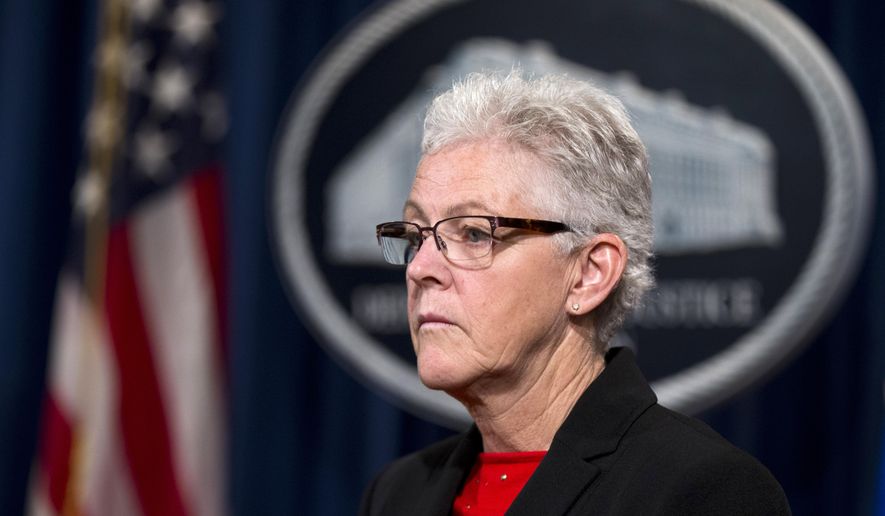The Environmental Protection Agency is dragging its feet and holding up court challenges to new carbon regulations, 14 states charged Wednesday as the legal battle over President Obama’s climate-change agenda heats up across the country.
West Virginia Attorney General Patrick Morrisey, along with officials in Arizona, Colorado, Florida, Texas, Kentucky and other states, filed federal Freedom of Information Act requests Wednesday to find out why the EPA has yet to publish the so-called Clean Power Plan in the Federal Register.
The plan — which limits carbon emissions from U.S. power plants and will raise electricity rates for most Americans, federal data show — was finalized in early August.
More than two months later, it has yet to be published in the Federal Register, and that delay is preventing states from mounting legal challenges to the plan, Mr. Morrisey and others say.
“Publishing a rule typically occurs much faster than it has in this case. Our goal is to understand the cause behind the unusually long delay between the finalization and publication of the Clean Power Plan,” Mr. Morrisey said in a statement. “We want to help the public understand why one of most widely criticized rules in our nation’s history is being subject to such unexplained delays. This harms the states and undermines the availability of review by our courts.”
States and energy companies are certain to sue over the regulations, which form the centerpiece of Mr. Obama’s broader climate-change agenda.
Previous court decisions, however, have made clear that lawsuits challenging the Clean Power Plan cannot be filed until the rules are finalized and formally published. As a result, EPA’s delay — much longer than the typical period for publishing rules in the Federal Register, which often takes just a matter of weeks — has left states in the position of crafting plans to meet the new carbon standards without the ability to challenge the plan in court.
In a statement, the agency said it has no control over the Federal Register process but expects the rules to be published within the next few weeks.
“EPA is following the normal process with the Office of the Federal Register, and has sought expedited publication of the Clean Power Plan. The Office of the Federal Register is a separate agency, and EPA does not control the timing of publication. EPA expects, based on past experience with other large rules, that the final rule will be published in the Federal Register by late October,” EPA spokeswoman Laura Allen said in an email.
Agency officials added that while it’s common for some rules to be published within weeks, the Clean Power Plan is so large it’s simply taking more time to complete the process. The rule, finalized on Aug. 3, is more than 1,500 pages long.
Meanwhile, Republicans on Capitol Hill say the regulations, and the way in which they’re being implemented, have put states in a bind. Under the plan, states are required to come up with their own methods for reducing power-plant pollution to meet the EPA’s broader goal of cutting overall U.S. carbon emissions by 32 percent by 2030.
If states fail to develop their own plans, the EPA will do it for them.
Many lawmakers say the framework is problematic on several fronts, chiefly because states must immediately begin figuring out how to comply with the plan even though it may ultimately be struck down in court.
“The threat of being subject to a federal plan is putting states between a rock and a hard place — either devote significant state resources to develop a state plan in response to a rule that is likely to be struck down by the courts, or become subject to mandatory federal controls in less than a year after rule’s publication,” Rep. Fred Upton, Michigan Republican and chairman of the House Energy and Commerce Committee, said at a Wednesday House hearing on the administration’s climate agenda.
• Ben Wolfgang can be reached at bwolfgang@washingtontimes.com.




Please read our comment policy before commenting.